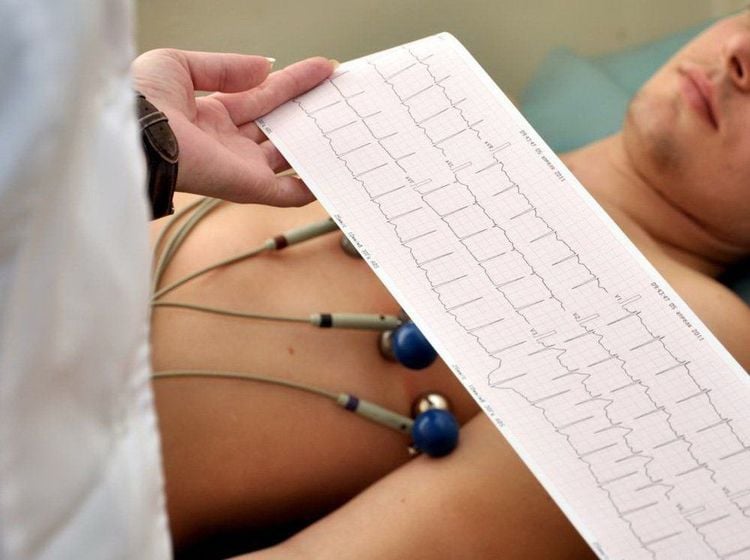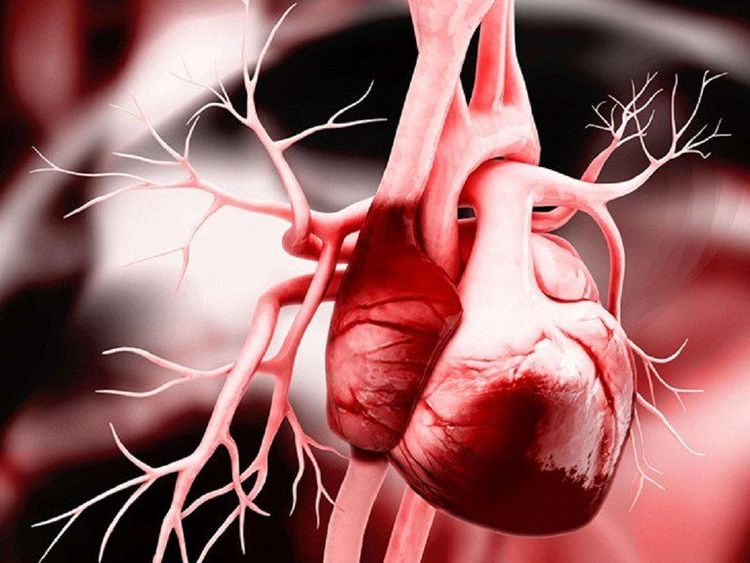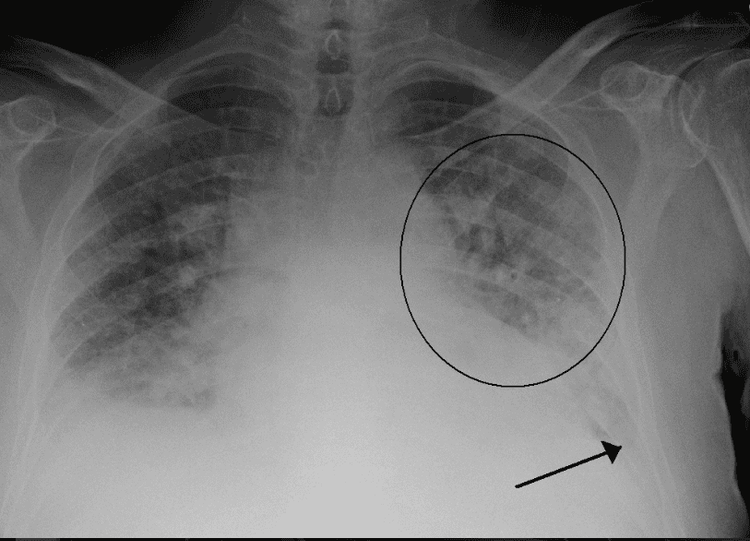This is an automatically translated article.
Posted by Master, Doctor Huynh Khiem Huy - Cardiovascular Center - Vinmec Central Park International General Hospital
Anesthesia is a term used to describe all forms of anesthesia that include sedation and/or painlessness in order to provide comfort to the patient during procedures or surgery. With the advancement of science and technology, today's anesthesia cases become safer when performed, monitored by a team of well-trained and professionally trained anesthesiologists / nurses. Karma.
With the current state of cardiovascular disease increasing, the number of patients requiring surgery and concomitant heart disease tends to increase. At the same time, it is a challenge for surgical anesthesia to treat non-cardiac pathologies for this group of patients.
1. The role of anesthesia in patients with cardiovascular disease
When cardiovascular patients need surgery for other diseases, the role of anesthesia is to ensure safety during surgery/procedure like other patients, and at the same time, it must be minimized or prevented. prevent possible cardiovascular complications during perioperative treatment.
Preoperative evaluation of the patient in order to devise an appropriate anesthetic strategy is very important. This requires coordination and agreement among anesthesiologists, surgeons and cardiologists.
During the anesthetic consultation session, in addition to assessing the general issues of preparation for anesthesia, cardiovascular patients are also examined and assessed for cardiovascular risk when performing surgery. For example, the likelihood of having a heart attack, having perioperative heart failure, predicting how worse the cardiovascular condition would be if surgery is required,...
For cardiovascular patients who need elective surgery , the preoperative evaluation is done adequately including clinical examination, monitoring of laboratory indicators and may have to include more specialized methods such as stress electrocardiography, coronary angiography. However, in case of urgent surgery, the assessment needs to be quick, concise, not time consuming and can be re-evaluated the cardiac status after surgery more fully.
Currently, the probability of experiencing a cardiovascular event (i.e., 30-day rate of cardiovascular death or myocardial infarction) during noncardiac surgery can be divided into three levels depending on the type of surgery. art. Surgery with a low probability < 1% such as eye surgery, breast surgery or thyroidoscopy. The surgery has an average probability of 1-5% such as hernia repair, splenectomy, kidney transplant. Meanwhile, surgery of aorta, pancreas - duodenum, liver resection,... all have high risk of cardiovascular events > 5%.

Người bệnh cần thực hiện đo điện tim để đánh giá tình trạng trước khi gây mê
2. How does anesthesia work?
Depending on the medical condition, each patient will be applied different anesthesia. However, there is a general rule that is full pre-anesthesia, regional anesthesia instead of general anesthesia, priority is to choose an anesthetic method that ensures sufficient anesthesia but does not cause large fluctuations in heart rate, blood pressure and blood pressure. other hemodynamic parameters.
In the period of anesthesia release and postoperative care, special attention should be paid to pain and oxygen supply to the body. Severe postoperative pain can increase blood pressure and heart rate, affect heart function, and may cause myocardial ischemia. In addition, if hypothermia or hypoxia also affects cardiovascular function, causing arrhythmias, close monitoring helps detect and treat promptly. The patient is then returned to the cardiovascular regimen as before the surgery, the cardiovascular condition may worsen in the 3rd to 5th days after surgery, so close monitoring is required.
3. How is anesthesia given to patients with coronary artery disease?
Coronary ischemia or worse, myocardial infarction can occur even before, during and after surgery, often associated with large fluctuations in heart rate, blood pressure or increased consumption myocardial oxygen. In addition, the risk of myocardial injury is increased in the perioperative period especially in patients with recent myocardial infarction or coronary stenting. Therefore, the preoperative assessment plan to know the coronary condition is very important as well as the cardiac enzyme monitoring test combined with the electrocardiogram measurement are two indispensable steps
Regarding the use of cardiovascular drugs before surgery , some can continue to be used as beta-blockers, hypolipidemic, calcium channel blockers, ACE inhibitors. However, whether to continue or stop aspirin depends on the type of surgery and whether the surgery is urgent or elective. In addition, one of the important goals of anesthesia is to reduce myocardial oxygen demand by keeping the heart rate as low as 50-80 beats/min, maintaining normal blood pressure or about 20% higher than the baseline, keep warm, avoid anemia,...
With many severe heart disease situations, patients can be considered for monitoring by advanced means. for example, placing more catheters to monitor intracardiac pressure, transesophageal echocardiography instead of just ECG monitoring, continuous blood pressure as usual
Next, the choice of anesthetic technique will depend on Depending on the need for surgery, comorbidities and agreement between the surgeon, anesthesiologist and the patient. The management of perioperative pain is extremely important for major surgery such as abdominal or thoracic surgery. Usually anesthesia combined with anesthesia to reduce pain during and after surgery is one of the preferred techniques. Good pain control helps to reduce heart rate, blood pressure, and risk of myocardial ischemia.
Finally, an important step after surgery is to review the cardiovascular status. Patients with complaints of chest pain accompanied by electrocardiographic changes should help suspect ongoing myocardial ischemia. Cardiac enzyme testing can also help with preoperative results.

Nhồi máu cơ tim có thể xảy ra trong quá trình phẫu thuật
4. How is anesthesia in heart failure patients performed?
In patients with heart failure who undergo any type of surgery, the risk of disability and death is increased, so preoperative consultation to assess the severity of heart failure, the likelihood of symptoms new and the risk of death. Preoperative functional investigations such as electrocardiograms, echocardiograms and blood tests to monitor the extent of heart failure should be performed adequately. In some situations, more specialized investigations such as stress echocardiography may be needed. In the case of patients with severe and compensatory heart failure, surgery should be postponed if possible in order to treat more stable heart failure before surgery.
Before surgery, it is important to adjust cardiovascular drugs, drugs that need to be continued before surgery can be mentioned as beta-blockers, ACE inhibitors, diuretics, cardiac drugs. ,...unless there is hypotension, intravascular volume depletion or impaired renal function. Consider when to stop taking oral anticoagulants and switch to injectables to balance the risk of thrombosis and bleeding.
Anesthesia and intraoperative monitoring are similar to the group of coronary artery disease as above. Use advanced monitoring measures if heart failure is unstable and major surgery is performed for a long time. The choice of anesthesia or general anesthesia depends on the nature of the surgery and the patient's condition. If both general anesthesia and sedation are available, the choice of anesthesia for the patient may be beneficial over general anesthesia. In addition, the choice of cardiac drugs and fluid control during surgery is also very important, patients with heart failure usually need to limit fluid infusion compared to people with healthy hearts to avoid overloading the heart. Consider transfusion of blood and blood products for patients with heart failure if the hemoglobin level in the blood is low or there is a coagulopathy or inadequate organ perfusion.
After surgery, heart failure patients are prone to complications such as pulmonary edema, myocardial ischemia or arrhythmia. It is necessary to continue to monitor the ECG continuously, the parameters of the ventilator as well as the status of pink foamy sputum. Repeat test for markers of heart failure to compare with preoperative.

Bệnh nhân có thể bị phù phổi sau phẫu thuật
Vinmec International General Hospital is one of the hospitals that strictly applies safe surgical anesthesia practice standards according to international guidelines. With a team of experienced anesthesiologists and nurses and modern equipment such as nerve detectors, ultrasound machines, Karl Storz's difficult airway control system, comprehensive anesthesia monitoring system GE's AoA (Adequate of Anesthesia) including monitoring of anesthesia, pain and muscle relaxation will deliver high quality and safety, helping patients to have adequate anesthesia, not awake, no residual muscle relaxants after surgery. Vinmec Health System is also proud to be the first hospital in Vietnam to sign with the World Anesthesiology Association (WFSA) towards the goal of becoming the safest hospital for surgical anesthesia in Southeast Asia.
To protect heart health in general and detect early signs of myocardial infarction and stroke, customers can sign up for Cardiovascular Screening Package - Basic Cardiovascular Examination of Vinmec International General Hospital . The examination package helps to detect cardiovascular problems at the earliest through tests and modern imaging methods. The package is for all ages, genders and is especially essential for people with risk factors for cardiovascular disease.
Customers can directly go to Vinmec Health system nationwide to visit or contact the hotline here for support.
SEE MORE
Vinmec aims to be the safest hospital in Southeast Asia for surgical anesthesia The difference between anesthesia and anesthesia Learn about anesthesia, regional anesthesia













